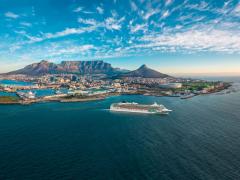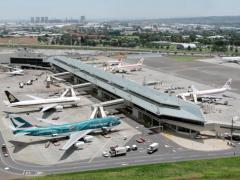Judgement was passed by the Randburg Land Claims Court regarding the Mhlanganisweni Community’s land claim against MalaMala Game Reserve on April 19.
The judges unanimously ordered that the restoration of the MalaMala properties to the Mhlanganisweni Community is not feasible within the parameters of the relevant law, and will therefore not take place.
The Mhlanganisweni community started legal action a few years ago in the Randburg Land Claims Court against MalaMala for the restitution of their land.
“Whilst we never allowed this threat to impact on our conservation agenda, we are relieved that the process is at an end,” said a statement by MalaMala Game Reserve.
In the 37 page judgement, it ruled, in addition to many other important issues, that:
In respect of MalaMala Game Reserve:
1. This eco-tourism philosophy, separating human development from the core wildlife areas, is very unusual in South Africa and serves to enhance both the wildlife viewing and the overall safari experience.
2. The MalaMala Game Reserve is world renowned. It has been at the forefront of commercial eco-tourism in South Africa from as far back as 1962. The facilities and the improvements at the Game Reserve are of a world-class standard.
In respect of the dispossession of the claimants:
1. In this respect, the evidence before the court shows that the land owners, their directors and members were not responsible for the dispossession of any of the claimants. The dispossessions, on which the claimants are constrained to rely, occurred before the present owners acquired the MalaMala land.
2. Any labour tenants or “squatters” who previously exercised rights in land had already left by the time the Rattrays arrived.
3. The MalaMala land, having been restored to its pristine wilderness condition east of the Sand River and with the eco-tourism business conducted thereon, is entirely different from what it was when the claimants were dispossessed. The claimants lost living space, grazing and cropping land. To restore one of the foremost eco-tourism destinations in the country to them, to be acquired at huge and prohibitive financial cost to the State, would amount to substantial overcompensation at public expense.
In respect of attempts by a neighbour to secure control of the MalaMala properties by purporting to provide funding and other resources:
1. I am not satisfied that the co-operation agreement provides sufficient comfort that the conservation of the MalaMala land and the eco-tourism business thereon will continue if the land is restored to the claimants. The agreement is too vague and open-ended in many respects, as will appear from what I have stated above.
2. I am not persuaded that the Co-operation agreement concluded between Londolozi and the claimants provide sufficient certainty that if the land is restored to the claimants, it will continue to be a viable commercial eco-tourism destination.
“It is now incumbent on the South African Government to give attention to the claimant community and where relevant to see that these communities are adequately compensated for any losses that they may have suffered. We would encourage the expeditious resolution of this matter in the interests of all stakeholders and the land restitution process in South Africa,” concluded the statement.
Judgement passed on MalaMala land claim
Comments | 0












